Nearly 100 Kurdish Citizens Arrested In Iran In Two Weeks: Rights Group
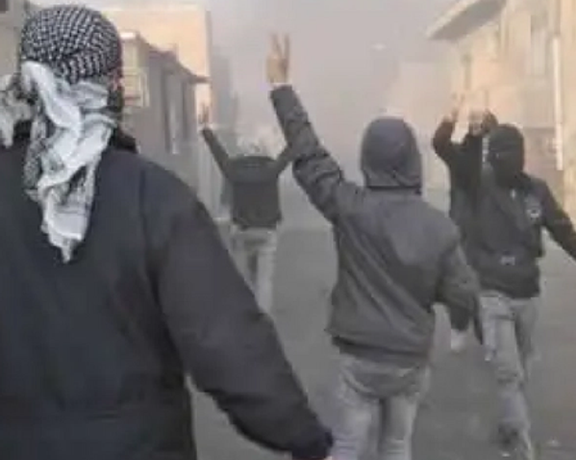
A Kurdish rights group says during the first 15 days of 2023, at least 96 Kurdish citizens have been arrested by Islamic Republic government forces.

A Kurdish rights group says during the first 15 days of 2023, at least 96 Kurdish citizens have been arrested by Islamic Republic government forces.
Hengaw Human Rights Organization announced in a tweet Monday that 13 children, five university students, four teachers, and five women are among the detainees.
Iranian security forces used excessive and lethal force against protesters in Kurdish regions since the beginning of nationwide protests following the death of 22-year-old Kurdish woman Mahsa Amini in police custody in mid-September.
There are no exact figures on the number of people arrested during the protests across the country, but some sources say nearly 20,000 people have been detained.
Security forces have killed around 500 civilians during the protests, many from Kurdish and Sunni regions in the southeast.
The Islamic Republic’s attacks on Kurds are not limited to the crackdown on protesters as the IRGC has also stepped-up shelling of Iranian Kurdish parties in the Iraqi Kurdistan region.
Back in November, the IRGC launched missile attacks against the positions of the dissident Iranian Kurdish group, the Democratic Party of Iranian Kurdistan in Erbil. At least three missiles hit the party's positions including a hospital, causing casualties.
The Islamic Republic calls the Kurdish armed groups in the western provinces of Iran, "terrorist groups" or "anti-revolutionary" but these groups say that the goal of their armed campaign is "defending the rights of the Kurds".
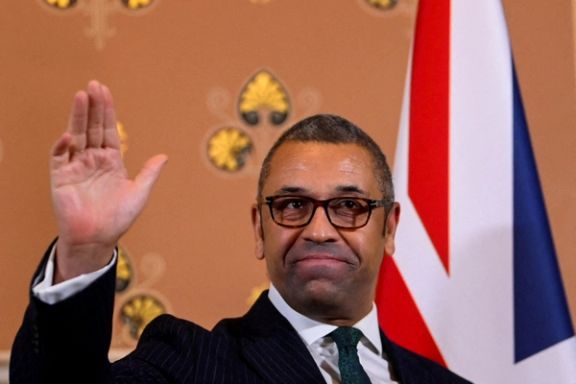
Britain's foreign minister censured the Islamic Republic Monday for luring back British-Iranian national Alireza Akbari and executing him after facing an arbitrary legal process.
Tehran announced on Saturday that it executed the former deputy defense minister, Akbari, after sentencing him to death on charges of spying for Britain’s MI6. Before his death, an audio file was leaked where he claimed to have been tortured for 3,500 hours. Akbari said in the tape the regime had forced him to confess to crimes he had not committed.
Foreign Secretary James Cleverly said in parliament, "They (Akbari's family) have shared his ordeal. An ordeal which began just over three years ago when he was lured back to Iran,” adding that "He was detained and then subjected to the notorious and arbitrary legal process of the (Iranian) regime."
In his statements to the House of Commons, he condemned the “cowardly and shameful” execution of Akbari, warning Tehran that “The world is watching you and you will be held to account.”
Akbari had been deputy defense minister under the reformist President Mohammad Khatami, from 1997 to 2005. He was an advocate of the Iran nuclear deal known as the JCPOA that was eventually signed in 2015 with world powers.
“Let there be no doubt, he fell victim to the political vendettas of a vicious regime,” he pointed out, noting that “His execution was the cowardly and shameful act of a leadership which thinks nothing of using the death penalty as a political tool to silence dissent and settle internal scores.”
Cleverly mentioned actions the UK took in reaction to the execution, summoning of Iran’s chargé d’affaires to the Foreign Office “to make clear our strength of feeling. Our ambassador in Tehran delivered the same message to a senior Foreign Ministry official.” He added that ten other countries have publicly condemned the execution, including France, Germany and the United States, and the European Union. “I am grateful for their support at this time,” Cleverly said.
Following the execution, the UK has imposed sanctions on Iran’s prosecutor general Mohammad Jafar Montazeri. Cleverly told British lawmakers that Montazari. “His designation is the latest of more than 40 sanctions imposed by the UK on the Iranian regime since October, including on six individuals linked to the revolutionary courts, which have passed egregious sentences against protesters, including the death penalty.”
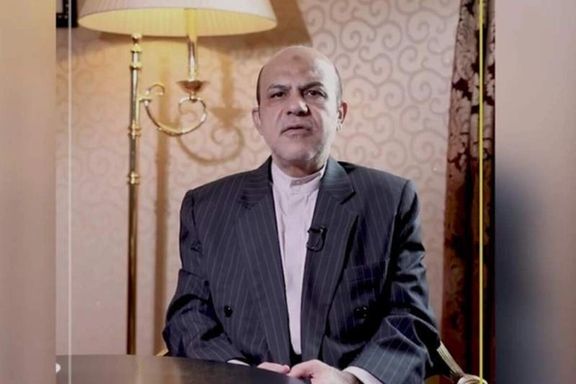
“In addition, I have temporarily recalled from Tehran His Majesty’s ambassador, Simon Shercliff, for consultations, and we met and discussed this earlier today. Now we shall consider what further steps we take alongside our allies to counter the escalating threat from Iran. We do not limit ourselves to the steps that I have already announced,” Cleverly added.
Expressing solidarity with the brave and dignified people of Iran who demand their rights and freedoms, Cleverly said, “Akbari’s execution follows decades of pitiless repression by a ruthless regime.”
“Just how much courage that takes is shown by the appalling fact that more than 500 people have been killed and 18,000 arrested during the recent wave of protests. Instead of listening to the calls for change from within Iran, the regime has resorted to its usual tactic of blaming outsiders and lashing out against its supposed enemies, including by detaining a growing number of foreign nationals for political gain. Today, many European nationals are being held in Iranian prisons on spurious charges, including British dual nationals,” he highlighted.
Following the execution, The Sunday Telegraph said the UK is reconsidering its support for the 2015 nuclear deal known as the JCPOA, dealing another blow to the chances of reviving the accord. Britain has been a key player in the talks on restoring the Obama-era deal, abandoned by former US President Donald Trump.
“During the time we have been dealing with it, the landscape and proposition has completely changed – largely because of the behavior of the Iranian regime,” a government source said and enumerated Iran’s behavior including military support for Russia, interventions in the Middle East and expanding its nuclear program.
Cleverly is also set to travel to Washington DC on Monday for talks with US Secretary of State Antony Blinken where the two will discuss Iran.
Akbari’s execution is a major escalation in tensions between the West and the Islamic Republic, which were already sour over Tehran’s crackdown on nationwide antigovernment protests and its military support for Russia’s invasion of Ukraine.
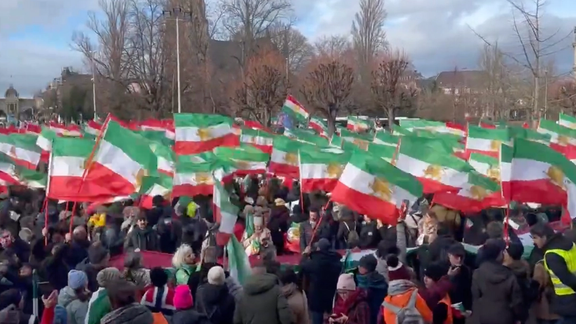
European officials and politicians who addressed a large Iranian rally in Strasbourg Monday vowed to help list the Revolutionary Guard as a terrorist organization.
“I’m here on behalf of the European Parliament and on behalf of 500 million European citizens to tell you that we are with you … That the women, men, students standing up in Iran have inspired the world,” the European Parliament’s speaker, Roberta Metsola, said in an address to the rally. “Your cry ‘Woman, Life, Freedom’ has been heard in every corner of the globe. You are on the right side of history, and you will make history,” she said.
“I have just addressed a rally and repeated the European Parliament’s call for a more forceful response to the terror unleashed by the regime of Iran. The people on the streets chanting Women Life Freedom will make history,” Metsola tweeted after her address to the rally.
“We will rescue our Iran from [the hands of] the mullahs,” Darya Safai, a Belgian-Iranian member of the Belgian Parliament told the participants in the rally. She vowed she would make every effort as an MP to tell her peers that it is putting the IRGC on the EU list of terrorist organizations is important not only for the Iranian people but also for “a safer world”.
Holding the IRGC responsible for “feeding and funding” many terrorist groups in the region, including Fatemiyoun and Zeynabiyoun who fight in Syria, the Hezbollah of Lebanon, the Islamic Jihad of Palestine and the Hashd al-Shaabi of Iraq. “We will do something for the IRGC to be known as the mother of international terrorism,” she said.
Liwa Fatemiyoun, or Fatemiyoun Brigade, and its Pakistani equivalent Zeynabiyoun are militia recruited by Iran’s Revolutionary Guards (IRGC) since 2014 from Shia Afghans and Pakistanis to fight in Syria alongside Bashar al-Assad’s forces.
While stressing that listing the IRGC as a terrorist organization is “only the first step” against the Iranian regime, Abir Al-Sahlani, representative of Sweden in the European Parliament, said the people of Iran have conquered the world with three words: Woman, Life, Freedom. The Iranian people deserve to enjoy basic human rights, freedom and democracy, she said.
Meanwhile, Charlie Weimers, a conservative member of the European Parliament who had been invited to join the Strasbourg rally as one of the speakers, in a tweet Sunday said his speech had been canceled by the organizers for “security reasons”. “Other speakers such as Abir Al-Sahlani, party colleague of the organizer, are not cancelled. I’m not going to lie. This is disappointing,” he wrote.
Some activists have criticized the cancelation of Weimers’ speech. “I have followed Weimers’ political activities for the past 20 years. He has always been the voice of the Iranians. Canceling his speech was a disappointment,” Arvin Khoshnood, a researcher of Iranian politics in Sweden, tweeted.
In his tweet, Khoshnood blamed Alireza Akhondi, a Swedish-Iranian member of the Swedish Parliament who organized Monday’s event in Strasbourg, for the cancellation. “Unity against the Islamic Republic is of outmost importance. Why exclude someone who can benefit the Iranian freedom cause?” he asked Akhondi.
Some social media users have alleged that Akhondi and other organizers canceled Weimers’ speech because he is well-known for supporting Iran's former crown prince, Reza Pahlavi, and they did not want Weimers to promote him in his speech.
“Charlie Weimers has been standing by the side of Iranians for a long time and on the right side of the history,” one of the critics tweeted. “His speech in Strasbourg was canceled because the enemies of Iran lost their mental security [for the fear of] him uttering the name Pahlavi,” he wrote.
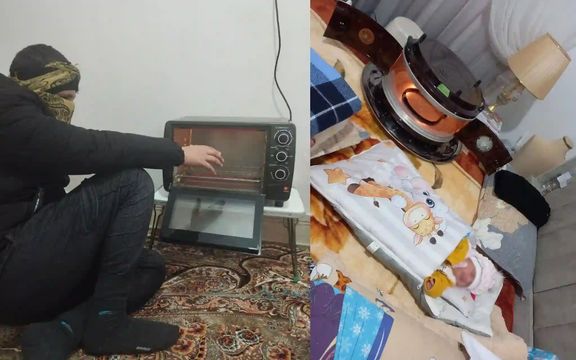
Iranians in the northeastern Torbat-e Jaam city held a protest rally in front of the governor’s office to protest government inefficiency amid natural gas shortage.
Videos received by Iran International show that people chant anti-regime slogans, saying “We don’t want incompetent authorities!”
Reports say amid the natural gas crisis, the price of non-gas heating devices like oil heaters have increased sharply in the city in the Khorasan region where the town is located.
A citizen has told local media that due to the crisis he has to warm his children at home using a hair dryer.
Meanwhile, videos on social media show a long queue in Torbat-e Jam to buy kerosene.
Earlier, Oil Minister Javad Owji announced that the city's natural gas is still cut off.
On Monday, people in Torbat-e Jam also rushed to the Red Crescent building to get oil heaters. Videos show some agents prevented people from breaking into the facility.
Some other videos on social media show long queues in Sabzevar in the same province to fill liquid gas and picnic capsules.
Gas shortage, especially in three provinces of Razavi Khorasan, South Khorasan and North Khorasan, has caused many problems for people.
In order to resolve the gas crisis in Tehran and other cities, the Islamic Republic has shut down schools and offices.

Iranians from across Europe gathered in Strasbourg in northeastern France to urge the European Union to list the Revolutionary Guard (IRGC) as a terrorist organization.
Social media videos show numerous groups of Iranians from different countries who traveled to the headquarters of the European Parliament in the city that has a plenary session to debate the listing of the iRGC in a call already supported by at least 100 members of the body. The Parliament is composed of over 700 members.
Busloads of people from the Netherlands, Switzerland, Sweden and Denmark as well as several buses form the German cities of Hamburg, Frankfurt and Berlin departed early in the morning to arrive in time for the demonstration, chanting slogans against the IRGC along the way.

An underground alliance of protester groups in Iran also welcomed and supported diaspora’s initiative. They have prepared posters and flyers to be distributed among the participants. “We wish to declare our full support for listing [the IRGC] as a terrorist organization by the international community,” United Youth of Iran, an underground alliance of revolutionary youth groups from various Iranian cities, said in a statement sent to Iran International. The group has criticized the IRGC’s suppression of protests in Iran, direct and indirect violation of human rights in other countries including Syria and Ukraine, and economic corruption including alleged involvement in drug and arms trafficking and money-laundering by the Guards. “The IRGC’s actions bring nothing but pain, death and corruption to the Middle East and the world,” the statement added.
Expressing support for the rally in Strasbourg, the Association of Families of Flight PS752 Victims, which was shot down by the IRGC with two surface-to-air missiles as it was taking off from Tehran on January 8, 2020, said it has routinely demanded listing the IRGC in its entirety as a terrorist entity. Emphasizing that “the acts of terrorism committed by the IRGC are countless,” the Association said in a statement that “Today, with the people of Iran making their voices heard loud and clear in the Woman, Life, Freedom revolution, it is time that Europe recognize and declare the true terrorist nature of the IRGC.”
In a joint message, prominent opponents of the Islamic Republic have also urged the international community to list Iran's Revolutionary Guard as a terror group. In a tweet published by exiled Prince Reza Pahlavi, football legend Ali Karimi, British-Iranian actress and human rights activist Nazanin Boniadi, journalist and activist Masih Alinejad, and actress Golshifteh Farahani they said, “our request for the international community is clear: put the IRGC on the terrorist list.”
According to some of the participants, time for appeasement of the Islamic Republic has come to an end, and now it is time for action against “the terrorist group” that is the key force to suppress the protesters in Iran and destabilize the region.
During the past few weeks, a hashtag in support of the punitive measure against the IRGC -- #IRGCterrorists -- has been retweeted more than 13 million times by Iranians and foreigners alike. Some social media users have urged Syrians, whose country has been a playground for the IRGC, and Ukrainians whose Russian enemy uses the Iranian-made drones against them, to join the rally and support their cause.
The European Parliament cannot decide to designate the IRGC because the terrorists list is not a list decided by the Parliament itself but by the EU Council, comprised of ministers of each EU country. The members of the parliament are set to vote on a resolution about Iran that would call for the designation of the outfit. The resolution is on the agenda for Thursday and not for the Monday session.
If the resolution garners enough support, it is then upon the national governments of the EU member states to make the final decision. The listing of the IRGC must have a unanimous vote by all 27 EU members in the EU Council.
Members of the UK House of Commons on January 12 unanimously voted for a motion urging the UK government to proscribe the IRGC by listing it as a terrorist organization. Moreover, more than 60 French senators have officially requested that the EU close Iranian banks in Europe and ban the passage of Iran Air planes from European skies, as well as abandon the nuclear agreement known as the Joint Comprehensive Plan of Action (JCPOA) completely.
Unlike the United States which in 2019 under President Donald Trump put the IRGC on its Foreign Terrorist Organizations (FTO) list, European countries avoided the designation in the past few years and prioritized diplomacy with the Islamic Republic in the hope of concluding a nuclear deal.
Many politicians in France, Germany, and other European countries have been keen to pursue the IRGC’s designation by the EU and say that it has been long overdue.
Alireza Akhondi, a Swedish-Iranian member of the Swedish parliament who has been campaigning for the EU designation, said last week that listing the IRGC should be followed by tracing the organization’s money and blocking its money-laundering channels to weaken it. “Let’s rally together, united, and with a common mind to label IRGC as a terrorist organization. Sanctioning criminals is not enough! We need a resolution! Let's make the world a safer place to live in!” he said.
Talks in Vienna to revive the deal, officially known as the JCPOA came to an abrupt stop in March 2022, reportedly for Iran’s insistence that the IRGC be removed from the US FTO list. Later talks elsewhere failed to bring about an agreement.
News that Iran is supplying Russia with kamikaze drones also angered the West and added to the antagonism against Tehran.
So far over 500 protesters have been killed by security forces, mainly consisting of the IRGC and its Basij militia. Four protesters have been executed so far by the state after hasty trials devoid of any regard for due process. Others are on death row.
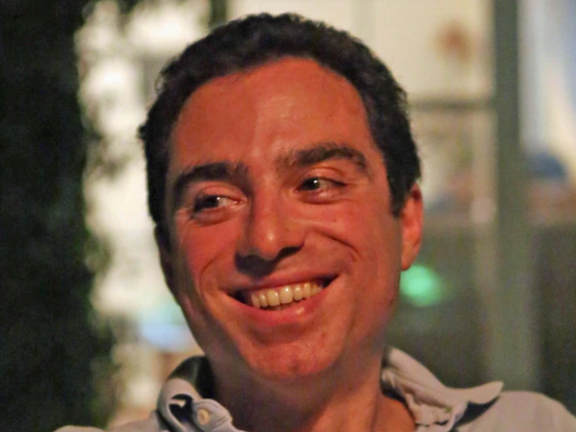
An Iranian American imprisoned in Iran for more than seven years appealed to US President Joe Biden on Monday to bring him home and said he was starting a seven-day hunger strike.
Siamak Namazi made the plea in a letter to Biden seven years to the day that Iran released five other US citizens in a prisoner exchange choreographed to coincide with the implementation of the 2015 Iran nuclear deal.
"When the Obama Administration unconscionably left me in peril and freed the other American citizens Iran held hostage on January 16, 2016, the US Government promised my family to have me safely home within weeks," Namazi, 51, said in the letter to Biden released by his lawyer, Jared Genser.
"Yet seven years and two presidents later, I remain caged in Tehran's notorious Evin prison," he added.
Namazi asked Biden to spend one minute a day for the next week thinking about the suffering of US citizens detained in Iran, who include environmentalist Morad Tahbaz, 67, who also has British nationality, and businessman Emad Shargi, 58.
Namazi and others have been detained on trumped-up charges in what seems to be Iran's long history of arresting foreigners as hostages.
Namazi, whose father was allowed to leave Iran in October for medical treatment after being detained on espionage-related charges rejected by Washington, said he would be on a hunger strike for the same seven days.
Asked for comment, a White House national security council spokesperson told Reuters the government was committed to securing Namazi's freedom.